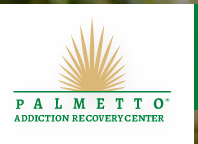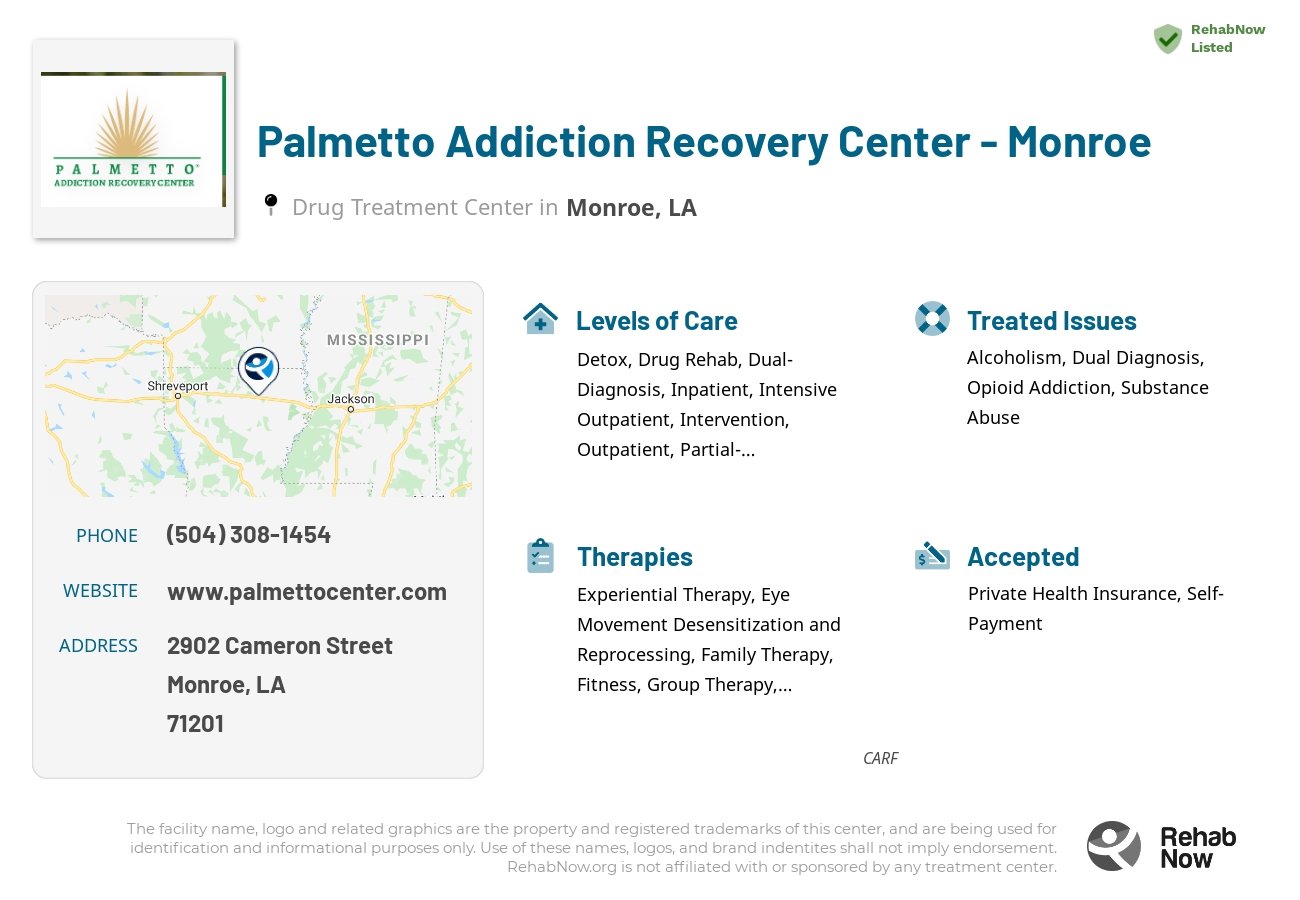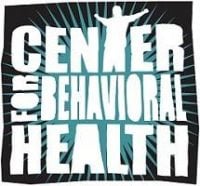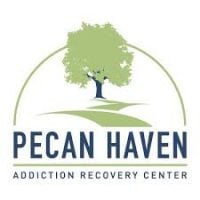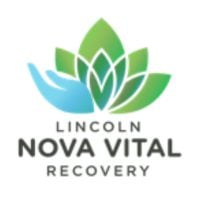Palmetto Addiction Recovery Center - Monroe
Drug Rehab Center in Monroe, Louisiana
Palmetto Addiction Recovery Center - Monroe is an accredited drug rehab center located in Monroe, LA which provides comprehensive substance abuse treatment plans suited to individual needs, with services including Dual-Diagnosis, Intensive Outpatient Program (IOP), Detoxification, Outpatient Treatment Services, Partial-Hospitalization Services, and Aftercare Support.
About Palmetto Addiction Recovery Center - Monroe in Louisiana
Palmetto Addiction Recovery Center in Monroe, Louisiana, has provided personalized, high-quality chemical dependency treatment for over 25 years. Their focus is helping adults overcome alcoholism and drug addictions through a therapeutic community model.
- Offers individualized treatment plans to meet each patient's unique needs
- Provides comprehensive care for the mind, body, and soul through various therapies
- Involves family members in the recovery process for additional support
Palmetto is accredited by CARF and committed to evidence-based, holistic approaches. Their dedicated staff utilizes proven methods like cognitive-behavioral therapy, along with experiential activities for well-rounded healing.
Palmetto treats addictions to substances like alcohol and drugs. Their programs include individual and group counseling, education on addiction, relapse prevention, and aftercare planning. Inpatient and outpatient levels of care are available.
Genders
Ages
Modality
Additional
Accreditations

CARF
The Commission on Accreditation of Rehabilitation Facilities (CARF) is a non-profit organization that specifically accredits rehab organizations. Founded in 1966, CARF's, mission is to help service providers like rehab facilities maintain high standards of care.
Conditions and Issues Treated
Substance abuse is defined by the continued use of drugs or alcohol despite negative consequences, such as legal or work problems. It can be treated using a variety of services, including therapy and medication.
Substance abuse treatment is beneficial for:
- People who have been using drugs or alcohol for a long time.
- People who have been using drugs or alcohol to cope with stress, anxiety, or depression.
- People who have a mental health disorder in conjunction with substance abuse.
- People who continue to use drugs or alcohol despite the harmful effects they cause on their own life and the lives of others.
- People who have had multiple failed attempts at recovery without medical assistance.
If you believe that addiction treatment is right for you or a loved one, you can contact your primary care physician, or search for addiction treatment centers in your area. Treatment is beneficial to people who are motivated towards recovery, and who understand the benefits of professional care.
Opioid addiction is a common form of addiction, often caused by prescription drugs that are abused. Addiction is treated by detoxifying the body and following up with therapies to correct behavior and target the root of the problem.
Most opioid addiction begins with patients being prescribed painkillers after an injury or surgery. The body becomes used to the chemicals in these medications and soon no longer responds to their presence. As a result, addicts seek out stronger opiate-based medications like Oxycodone to compensate for the lack of effectiveness.
The most dangerous aspect is that these addictive behaviors often get carried over onto illicit drugs like heroin, which are increasingly potent and result in lower life expectancies.
Dual Diagnosis treatment centers like Palmetto Addiction Recovery Center - Monroe provide this treatment tailored to the patient’s specific needs, and they also have a specialized focus on addiction treatment. Drug and alcohol addiction often coexists with another mental illness, such as depression or schizophrenia. In other words, drug addiction is only a symptom of a deeper problem.
When addiction enters into the picture, it can often lead to dangerous consequences in the addict’s life. For example, when addiction is paired with major depression, it can lead to suicidal thoughts or actions. When someone is addicted to drugs or alcohol, they often experience a failure to control their impulses and difficulty decision-making.
Dual diagnosis for drug addicts can be very effective when treating drug addiction in Monroe, LA.
Levels of Care Offered
This center offers a variety of custom treatment tailored to individual recovery. Currently available are Aftercare Support, Detox, Dual-Diagnosis, Inpatient, Intensive Outpatient, Intervention, Outpatient, Partial-Hospitalization, with additional therapies available as listed below.
Detox is the body’s process of removing toxins. In substance abuse, detox refers to the process of getting rid of drugs already present in the system once the patient stops further intake. Detox is the initial recovery step. Physiological drug dependence over time can lead to symptoms of withdrawal. Depending on the symptom severity, the detox process is managed either medically or clinically. While medically assisted detox relies on specific medicines, clinical or social detox relies on providing the patient with emotional and psychological support.
The inpatient rehab at Palmetto Addiction Recovery Center - Monroe promises an intense and effective treatment. Inpatient rehabs are particularly recommended for those with a severe addiction to drugs. Detoxing at a rehab center ensures that the patient receives 24-hour medical supervision to ensure the best possible chance of recovery. Medical staff is readily available to intervene in case of withdrawal symptoms or other complications. This is not the case with outpatient treatment, where patients may be discharged after the detoxification process is complete.
Inpatient facilities provide residential and holistic treatment, with access to experienced medical professionals and rehab specialists. This ensures the best possible recovery and is recommended for patients with severe addiction seeking drug treatment.
Intensive Outpatient Programs (IOPs) are a form of drug treatment that allows individuals to receive the therapy they need while remaining in their homes and community. IOPs allow for the flexibility to continue working and living at home while still meeting treatment demands.
Outpatient treatment programs are less intensive than an inpatient program. Participants live at home while working or going to school. Benefits include being able to continue relationships with family, friends, and work/studies. Treatment includes educating patient on addiction to drugs, medication, and counseling. Benefits include being able to continue relationships with family, friends, and work/studies. Treatment includes educating patient on addiction to drugs, medication, and counseling. Counseling sessions are for either individual or group.
A Partial Hospitalization Program is the safest way for a person suffering from addiction to get treatment without putting their family at risk. The addict has the freedom to check in and out of treatment, yet they still receive outside guidance and confinement if needed to beat their addiction.
An addict in a Partial Hospitalization Program will meet with medical and psychological professionals and undergo drug testing, all of which can lead to a diagnosis and the beginning of an effective treatment plan. Treatment can include individual counseling, group therapy, family therapy, community support sessions, and more.
Drug rehab intervention aims to make sure patients understand the risks of their addiction and possible outcomes if they continue their behavior. They must learn how their addiction affects those around them and allow a therapy session to help move past the physical symptoms.
Interventions are used in drug rehab to help patients overcome their addiction to drugs. They often include psychotherapy or behavioral therapy, group therapy, family counseling, and peer support. Each intervention is designed to provide a unique perspective of how the addiction occurs and what can be done to stop it.
Aftercare Support in drug rehab is crucial because it helps people stay sober after treatment. The benefits of Aftercare Support are that it provides a pathway that will help people get sober for life. It supports healing at all levels, physical, mental, emotional, and spiritual.
Therapies & Programs
Individualized Treatment is essential because it gives addicts the ability to participate in a program that meets their unique needs. An addict should work with professionals who understand what they’re going through, especially if the addict is actively using.
Trying to find a treatment program that meets your needs can be challenging. It’s even more complicated if you don’t know what kind of treatment you need. Being able to have professionals who are experienced with treating your situation is key to getting sober. Finding the right treatment program for an addict is difficult, but it’s even harder without communicating with those who have experience treating your specific situation.
Couples therapy is beneficial for couples in which at least one partner has a substance use disorder. This type of therapy can help partners improve communication skills, which is an important factor in a healthy relationship. It can also help partners better understand one another so they have a greater understanding of how the other partner may be feeling.
Benefits of couples therapy include:
- Improvement in communication skills
- Increased understanding of the dynamics within a relationship
- Increased sense of support and trust in the relationship
- Better teamwork between partners/increased willingness to listen and work together
- Enhanced tolerance of each other’s shortcomings
- Improved ability to have open, honest communication with each other
Family dysfunction can often be the underlying cause of substance abuse. To get sober, you need to find a different way to cope with the pain in your life. Family therapy can help you and your family deal with old issues that may trigger substance abuse. It will help everyone understand why each member of the family feels and acts the way they do. It can give everyone new tools to manage their emotions so that they don’t want to drink or do drugs.
A person looking for drug recovery should know that group therapy is an essential tool. Group therapy provides accountability and friendship to people with addiction. It is recommended as a lifetime treatment habit. Group therapy occurs in a group setting as opposed to a one-on-one setting. It benefits patients by providing a feeling of support and letting them know they are not alone. Patients at Palmetto Addiction Recovery Center - Monroe also learn to build trust and understanding and gain perspective through discussions.
If you are looking for a drug addiction treatment program that also provides trauma therapy, then Palmetto Addiction Recovery Center - Monroe in Monroe, LA is a great option. The staff at this facility specialize in helping people process and understand the past traumas that have led them to addiction. This approach can help individuals move forward with their recovery and take a better hold of their sober future.
The benefits of trauma therapy at Palmetto Addiction Recovery Center - Monroe in Monroe, LA are as follows:
- People will become less likely to engage in self destructive behaviors.
- Their emotional and mental health will significantly improve.
- They will be more confident in their abilities to live an addiction-free life.
- People will be able to connect with other people on a deeper level.
- Their problems with intimacy and trust will improve.
Dialectical behavior therapy is a type of cognitive-behavioral therapy that focuses on eliminating specific negative thoughts that can potentially lead to an individual inflicting self-harm. It helps treat patients exhibiting uncontrollable emotions, intense mood swings, and borderline personality disorders.
The term “dialectic” means the integration of opposites. In the substance abuse context, dialectical behavior therapy refers to accepting the patient’s addiction and changing their thoughts and behavior. It improves life skills such as controlling intense emotions without reacting impulsively, resolving interpersonal conflicts effectively, and promoting awareness about self and others.
Cognitive behavioral therapy (CBT) is a type of psychotherapeutic treatment that is focused on changing negative ways of thinking that contribute to addictive behavior.
Cognitive behavioral therapy is beneficial for:
- People who are seeking to overcome addictive behavior
- Those who struggle with addictive behavior and mental illness
- People who have a genetic history of addiction in their family
- Those who don’t want to depend on medications
- Those who need a more practical treatment approach
Addicts seeking sobriety can find quick results with Rational Emotional Behavior Therapy. This type of counseling offered by Palmetto Addiction Recovery Center - Monroe replaces negative and self-limiting thoughts with positive and productive behaviors. This allows addicts to move forward without having to deal with ongoing treatment throughout their lives.
Eye Movement Desensitization and Reprocessing (EMDR) is an integrative psychotherapy approach that has been extensively studied and proven effective for treating trauma. EMDR is a set of standardized protocols that incorporates elements from many different treatment approaches. EMDR therapy promotes information processing of external stimuli, memories, thoughts, and feelings. EMDR sessions typically last 50-90 minutes and can be completed in as little as 12-15 sessions. However, many individuals with chronic trauma histories require more than 50 EMDR sessions to achieve significant symptom relief.
EMDR therapy treats individuals, children, and adults of either gender exposed to one or more traumatic events. EMDR cannot cause someone to forget details of the traumatic event(s), nor does EMDR focus on exploring the past trauma(s). EMDR has been demonstrated effective for survivors of various traumas, including accidents, natural disasters, violent crimes, sexual abuse, and combat stress.
EMDR is most effective when the client has completed a thorough psychiatric evaluation to rule out or treat any co-existing mental health problems. EMDR therapy does not involve hypnosis or abreaction (catharsis) of traumatic memories. EMDR is a goal-directed therapy in which the client works with the therapist to develop an individualized treatment plan that focuses on specific trauma memories and associated disturbance.
The 12-step program is one of the most common forms of addiction treatment today. It consists of attending meetings and working with a sponsor to follow the 12 steps outlined by Alcoholics Anonymous. This method is not for addicts who are unwilling to or have no desire to quit using and so is best utilized when paired with other treatment methods.
Contingency Management (CM) is an approach to addiction treatment that applies behavioral psychology to achieve abstinence or improved health outcomes. Recovering addicts are more likely to remain abstinent and improve their health outcomes when rewarded for not using drugs or engaging in other rewarding activities. CM is effective for treating opioid, alcohol, and nicotine dependence.
Patient Experience
Experiential Therapy at Palmetto Addiction Recovery Center - Monroe
Experiential therapy is a type of therapy that has been found to be effective in the treatment of substance abuse. It is a “hands-on” approach, which can involve anything from acting to rock climbing. The individual must trust the therapist for this therapy to work. This therapy helps individuals revisit and heal from past traumas and has been used in various behavioral and eating disorders.
Fitness Therapy
Exercise releases feel-good chemicals and can improve self-esteem. Physical fitness can also help increase abstinence rates, ease withdrawal symptoms, and improve depressive symptoms. Fitness therapy is part of the holistic approach and comprehensive care provided in substance abuse treatment. It does not involve the vigorous exercise regimes used in fitness programs.
A fitness therapy program at Palmetto Addiction Recovery Center - Monroe achieves improved attention, cognitive functions, and memory power. Additionally, endorphins released during exercise reduces anxiety and stress levels and enhance calmness. Fitness therapy complements other therapies used in a residential or outpatient treatment program.
Payment Options Accepted
For specific insurance or payment methods please contact us.
Is your insurance accepted?
Ask an expert, call (888) 674-0062
Palmetto Addiction Recovery Center Associated Centers
Discover treatment facilities under the same provider.
- Palmetto Addiction Recovery Center - Rayville in Rayville, LA
- Palmetto Addiction Recovery Center - Metairie in Metairie, LA
- Palmetto Addiction Recovery Center - Lake Charles in Lake Charles, LA
- Palmetto Addiction Recovery Center - Shreveport in Shreveport, LA
- Palmetto Addiction Recovery Center - Lafayette in Lafayette, LA
Learn More About Palmetto Addiction Recovery Center Centers
Additional Details
Specifics, location, and helpful extra information.
Monroe, Louisiana 71201 Phone Number(504) 308-1454 Meta DetailsUpdated April 15, 2024
Staff Verified
Palmetto Addiction Recovery Center - Monroe Patient Reviews
There are no reviews yet. Be the first one to write one.
Monroe, Louisiana Addiction Information
Louisiana is one of the top ten states in the nation for opioid-related deaths. One in ten high school students admits to regularly using prescription opioids for non-medical purposes. More than 225,000 Louisiana residents admit to regular heavy drinking and around 6% of the Louisiana population abuses alcohol. Marijuana use in Louisiana is most common amongst teenagers between the ages of 12 and 17 years old.
The drug addiction problem in Monroe, Louisiana is a serious one. 8.9% of adults in Monroe are current users of illicit drugs, while 6.6% use alcohol on a regular basis. There were over 100 hospitalizations related to drug abuse in 2019 alone. The use of synthetic marijuana and K-2 or Spice is also a major issue in the area. Common types of drug rehab programs include inpatient and outpatient programs.
Treatment in Nearby Cities
- Ethel, LA (133.0 mi.)
- Olla, LA (44.4 mi.)
- Houma, LA (218.7 mi.)
- Schriever, LA (207.3 mi.)
- Jonesboro, LA (41.6 mi.)
Centers near Palmetto Addiction Recovery Center - Monroe
The facility name, logo and brand are the property and registered trademarks of Palmetto Addiction Recovery Center - Monroe, and are being used for identification and informational purposes only. Use of these names, logos and brands shall not imply endorsement. RehabNow.org is not affiliated with or sponsored by Palmetto Addiction Recovery Center - Monroe.
